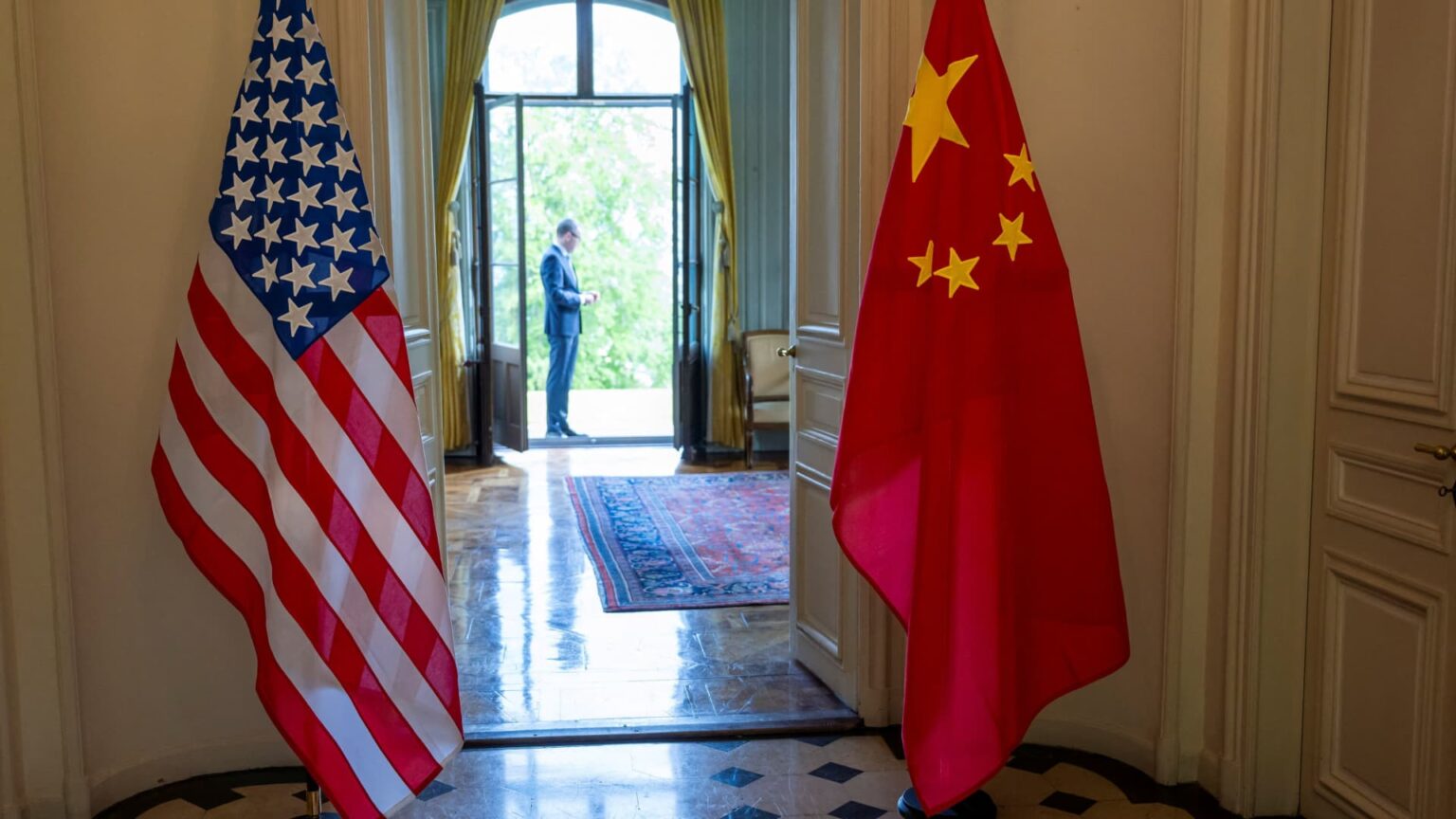Stalled U.S.-China Diplomatic Negotiations and Ongoing Tensions
On May 10, 2025, in Geneva, Switzerland, the flags of the United States and China were prominently displayed during a bilateral meeting aimed at addressing escalating trade and diplomatic issues. This high-profile event underscored the fragile state of relations between the two superpowers, which have recently experienced significant strains.
Current State of U.S.-China Relations
According to Treasury Secretary Scott Bessent, discussions between Washington and Beijing are currently experiencing a slowdown, necessitating direct engagement between the leaders of both nations. In an interview with Fox News, Bessent indicated optimism about resuming dialogue, suggesting that more talks are anticipated in the coming weeks. He also hinted at a potential summit between President Joe Biden and Chinese President Xi Jinping, emphasizing that such a meeting could be pivotal in resolving ongoing disputes.
Despite a recent breakthrough in Switzerland, where both countries agreed to temporarily suspend tariff hikes exceeding 100% for a period of 90 days-extending until mid-August-tensions persist. This agreement followed a series of intense negotiations, including a phone call between diplomatic officials from both sides last week. However, substantive issues remain unresolved, particularly regarding technology restrictions and resource exports.
Persistent Disagreements Over Technology and Resources
While the tariff dispute saw a temporary easing, the U.S. continues to impose restrictions on Chinese technology firms, which has drawn Beijing’s criticism. China has also maintained its stance on controlling the export of rare earth elements-critical materials used in electronics and military applications-despite expectations from Washington that restrictions might be relaxed. Chinese officials have called on the U.S. to rectify what they describe as “erroneous practices” and to honor the consensus reached during high-level talks in Geneva.
He Yongqian, spokesperson for China’s Ministry of Commerce, reiterated China’s position during a recent briefing, urging the U.S. to correct its policies. When asked about the possibility of suspending export controls on rare earths, she declined to give a definitive answer, emphasizing that these restrictions are aligned with China’s broader goals of maintaining regional stability and supporting global peace efforts.
Diplomatic Efforts and Future Prospects
Despite ongoing disagreements, China has continued diplomatic engagement with the U.S., seeking to stabilize relations amid rising global economic uncertainties. Recent statistics indicate that China remains a vital trade partner for the U.S., with bilateral trade volume reaching approximately $690 billion in 2022, despite the tensions. Both nations recognize the importance of dialogue, especially given the complex nature of their economic interdependence.
Looking ahead, analysts suggest that a comprehensive resolution will likely require direct involvement from the highest levels of leadership. President Biden has expressed willingness to engage in talks with Xi Jinping, but both sides remain cautious. The Chinese government has indicated that it will only participate in meaningful negotiations if the U.S. demonstrates a genuine commitment to mutual respect and avoids unexpected policy shifts.
Recent Developments and International Reactions
In addition to trade negotiations, the U.S. recently announced plans to revoke visas for Chinese students, citing concerns over national security. China’s Foreign Ministry spokesperson Mao Ning condemned this move, describing it as “unjustified” and accusing the U.S. of using ideological motives to justify restrictive policies. This development has further complicated diplomatic relations, highlighting the broader geopolitical tensions that influence economic negotiations.
As the global community watches closely, the coming weeks will be critical in determining whether the U.S. and China can bridge their differences and restore a more stable and cooperative relationship. Both nations face the challenge of balancing strategic interests with economic realities, making their next steps crucial for regional and global stability.

